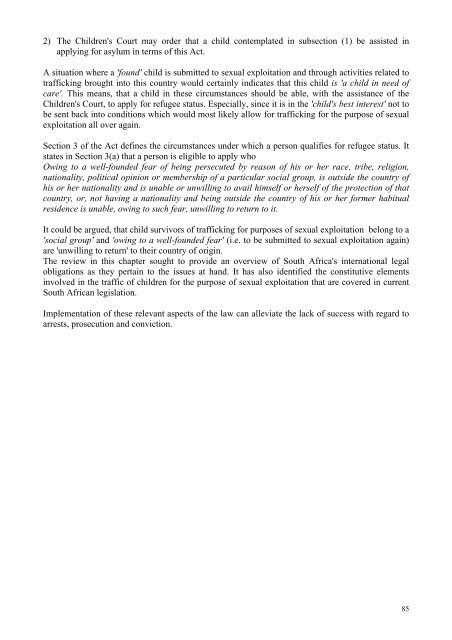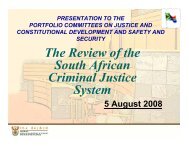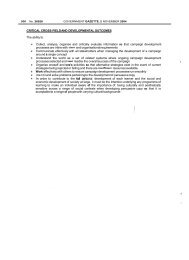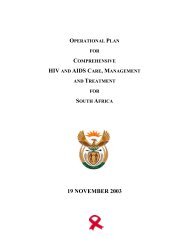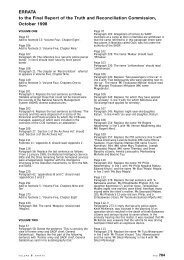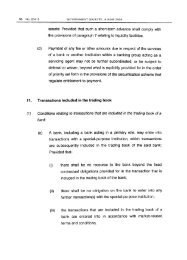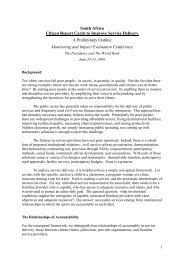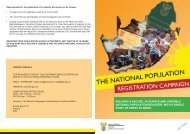The trafficking of children for purposes of sexual exploitation
The trafficking of children for purposes of sexual exploitation
The trafficking of children for purposes of sexual exploitation
You also want an ePaper? Increase the reach of your titles
YUMPU automatically turns print PDFs into web optimized ePapers that Google loves.
2) <strong>The</strong> Children's Court may order that a child contemplated in subsection (1) be assisted in<br />
applying <strong>for</strong> asylum in terms <strong>of</strong> this Act.<br />
A situation where a 'found' child is submitted to <strong>sexual</strong> <strong>exploitation</strong> and through activities related to<br />
<strong>trafficking</strong> brought into this country would certainly indicates that this child is 'a child in need <strong>of</strong><br />
care'. This means, that a child in these circumstances should be able, with the assistance <strong>of</strong> the<br />
Children's Court, to apply <strong>for</strong> refugee status. Especially, since it is in the 'child's best interest' not to<br />
be sent back into conditions which would most likely allow <strong>for</strong> <strong>trafficking</strong> <strong>for</strong> the purpose <strong>of</strong> <strong>sexual</strong><br />
<strong>exploitation</strong> all over again.<br />
Section 3 <strong>of</strong> the Act defines the circumstances under which a person qualifies <strong>for</strong> refugee status. It<br />
states in Section 3(a) that a person is eligible to apply who<br />
Owing to a well-founded fear <strong>of</strong> being persecuted by reason <strong>of</strong> his or her race, tribe, religion,<br />
nationality, political opinion or membership <strong>of</strong> a particular social group, is outside the country <strong>of</strong><br />
his or her nationality and is unable or unwilling to avail himself or herself <strong>of</strong> the protection <strong>of</strong> that<br />
country, or, not having a nationality and being outside the country <strong>of</strong> his or her <strong>for</strong>mer habitual<br />
residence is unable, owing to such fear, unwilling to return to it.<br />
It could be argued, that child survivors <strong>of</strong> <strong>trafficking</strong> <strong>for</strong> <strong>purposes</strong> <strong>of</strong> <strong>sexual</strong> <strong>exploitation</strong> belong to a<br />
'social group' and 'owing to a well-founded fear' (i.e. to be submitted to <strong>sexual</strong> <strong>exploitation</strong> again)<br />
are 'unwilling to return' to their country <strong>of</strong> origin.<br />
<strong>The</strong> review in this chapter sought to provide an overview <strong>of</strong> South Africa's international legal<br />
obligations as they pertain to the issues at hand. It has also identified the constitutive elements<br />
involved in the traffic <strong>of</strong> <strong>children</strong> <strong>for</strong> the purpose <strong>of</strong> <strong>sexual</strong> <strong>exploitation</strong> that are covered in current<br />
South African legislation.<br />
Implementation <strong>of</strong> these relevant aspects <strong>of</strong> the law can alleviate the lack <strong>of</strong> success with regard to<br />
arrests, prosecution and conviction.<br />
85


